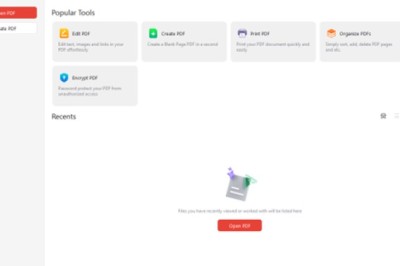views

URL: https://cdn.pixabay.com/photo/2015/06/24/15/45/computer-820281_960_720.jpg
Have you ever wondered how many great ideas don't come to fruition? How many emails get deleted after 3 seconds of attention? How many misunderstandings arise daily due to the inability to clearly express your thoughts in business writing? And then some of the readers may ask: is there a plain and understandable article that can help improve your memos, letters, reports, and other business papers without studying a lot of specialized literature?
Fortunately, it's in front of you. After reading it, you no longer have to spend a lot of time editing and thinking about what's essential and what you should avoid while preparing business documents. So, for now, every word you write will always be on target.
A Few Words About Business Writing and How to Succeed in It
Business writing is an effective communication channel businesses use to interact with their internal and external audiences. And here, we're talking about emails, memos, letters, reports, and marketing materials. The purpose of writing all these documents is to inform or persuade recipients to perform a specific action. As a result, clients, customers, suppliers, and business partners professionally receive comprehensive information.
So, naturally, clarity, persuasiveness, and absence of errors are obligatory requirements for business writing. If you want to learn more about business writing and its main types, you can check it out here. In the meantime, we'll say a few more words about business writing skills. What are they in simple terms? In a nutshell, they are the characteristics that help people communicate effectively in a professional environment through writing.
And in this context, communication, proofreading, and persuasion are essential. These factors will help a team member interact more clearly with a particular audience in situations where there is a need to send an email, compose a memo, or write a newsletter to clients, colleagues, or superiors. Moreover, improved business writing skills will help you increase your credibility in the workplace and look more professional when communicating with clients and colleagues.
8 Tips on How to Improve Business Writing Skills
So, suppose you want to quickly improve your writing skills in memos, letters, reports, and other business papers to create more effective communication at work. In that case, you can use the tips and recommendations below. Otherwise, you can employ essay writing services, which are high quality and reasonably priced.
# 1 Determine Your Purpose and Make a Plan
To write effective business materials, you need to outline what you want to communicate in advance. First, think carefully about the purpose of your message. Next, identify critical points you'll need to include in the text. Preparation won't take much time, but it helps ensure you mention only the most necessary information.
# 2 Understand Your Audience
Once you've determined the purpose of your business document, you need to understand the interests and needs of those it is intended for. Since you're reading this article, we're sure you likely have to deal with writing business materials for different people at work. So think carefully about how your document might appeal to your target audience. Don't also forget to consider your relationship with the recipient, as this factor directly determines the tone of your message: strictly formal, neutral, or more conversational.
# 3 Use Active Voice Only
Active voice sentences have more clarity than passive ones. In the first case, the object or subject acts; in the latter, it receives the action. Returning to the second tip, it's worth thinking extra about your recipients. No one likes to read too long and hard-to-understand messages. Thus, it's better to follow a simple rule: fewer words, more meaning. Your target audience will surely be grateful for it.
# 4 Get Right to the Point
It's one of our favorite recommendations for properly drafting business documents. While creative letters welcome lengthy introductions, business ones must get to the point quickly. That way, the recipient understands if your letter is meaningful to them. And if you can't give up the urge to pour water, think about how a person busy at work will read your message. Then, put yourself in their shoes for a better understanding.
We discussed determining the entire message's critical points in our first tip. Now focus only on the introduction. Similarly, think of the main points and write a brief sentence that you can place at the beginning of your document. For example, if your memo, letter, or report consists of several paragraphs, it is worth adding the main point to the first sentence of each one. It saves your recipients from having to find the primary purpose of your message on their own.
# 5 Focus on Accuracy
Here we allow ourselves to make a slight generalization: just as any professional activity can't exist without business documentation, equally, business documentation can't function well without such an essential component of business writing as accuracy. Remember that your letters and reports should include facts, not your personal opinion.
Always keep the primary purpose of your message in mind. Share your thoughts about something in private correspondence with friends. In a professional environment, you should avoid such familiarity. Accurate data and statistics can persuade your recipient to follow specific recommendations, so use such information when writing persuasive business letters.
The use of hyperboles will also be unnecessary in a business document. In addition, you will benefit from the absence of this stylistic figure in your writing, as it will increase the credibility of your professional activities. When the recipient knows that they can rely on you to provide accurate data, it inspires trust and convinces them to listen to your words.
# 6 Be Yourself
You've probably seen this recommendation many times before in the context of any other topic. And it suggests that it is somewhat universal. So when writing less formal business letters, you can take this advice to heart by indicating your unique voice in the document. We are all human beings first and foremost, and while spending time at work, we are still human beings.
So when drafting business letters, it's best to write as if you're talking to the reader in person. Avoid overly complicated words and turns, giving preference to words you use in everyday life. Of course, you shouldn't use jargon. In short, strike a balance between formal and colloquial speech, which will help you gain the trust of your recipients.
Use simple wording, so it will make your letter more engaging. However, don't forget who you're writing for: if for clients — use formal language; if for colleagues — use more conversational language so they can more easily understand your personality (if you want to maintain a friendly relationship with employees at work).
# 7 Focus on Professionalism
By professionalism, we mean written communication that demonstrates respect for others. Here again, it is worthwhile to balance showing your authentic and professional selves. Both components are equally important, as the former allows for better rapport, and the latter instills confidence in your professionalism on the part of the recipient. To that end, reread your message and consider whether you would feel comfortable having it read by top management or accessed by the public.
# 8 Create Templates
Templates can save a significant amount of your workflow if you often compose the same written messages for colleagues or clients. However, it doesn't mean that you must now strictly follow a sure thing when creating business documentation. But even if you deviate from a ready-made template from time to time, it still helps you get started on your writing much faster.
For example, if you draft follow-up letters for clients every six months or so, having a template can save you time and allow you to pay more attention to urgent tasks. But at the same time, don't forget to carefully review any drafted documents that use the template to ensure you've replaced the correct information (company or customer names).
Bottom Line
The success of any business largely depends on a properly drafted purpose. Business writing aims to clearly and effectively convey information to the recipient. Therefore, business documents should be easy to understand and give the target audience the necessary information. Remember that an effective business letter can help save time and money and build better relationships with customers, clients, and employees.




















Comments
0 comment